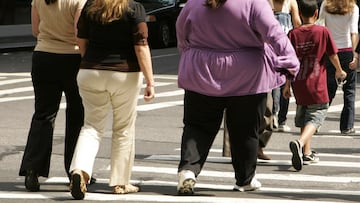HEALTH
What are the 5 most obese cities in the USA?
The United States faces a significant obesity epidemic, with certain cities experiencing far higher rates than the natonal average.

The United States is grappling with a severe obesity crisis that has been steadily worsening over the past few decades. According to recent data from the Centers for Disease Control and Prevention (CDC), nearly 42% of American adults were obese in 2017-2020, a significant increase from 30.5% just twenty years earlier.
Obesity is defined as having a body mass index (BMI) of 30.0 or higher.
According to a study from WalletHub, these are the five most obese cities in the US.
- McAllen, Texas
- Jackson, Mississippi
- Shreveport, Louisiana
- Mobile, Alabama
- Little Rock, Arkansas
All of these cities are in the southern US, which should not be a surprise. Many Southern states have higher poverty rates, which correlates strongly with obesity. Limited access to affordable, healthy foods in impoverished neighborhoods leads to increased consumption of calorie-dense options.
The Southeast has inadequate public transportation, fewer sidewalks, and a climate less conducive to outdoor activities, hindering efforts to combat obesity through exercise. The area also has a larger concentration of African American populations, which tend to have higher obesity rates. For instance, the obesity rate among African Americans was 32.64% compared to 24.5% for whites.
Health implications of high obesity
Obesity is linked to numerous chronic diseases including: type 2 diabetes, cardiovascular disease, and certain types of cancer.
The economic burden is substantial, with estimated annual medical costs related to obesity reaching nearly $173 billion. The rapid rise in obesity rates is closely associated with changes in the American diet, particularly the increased consumption of ultra-processed foods and sugar-sweetened beverages.






